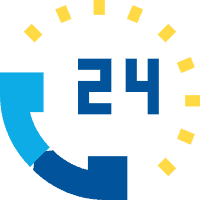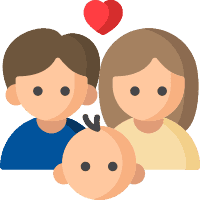Articulation refers to the way people produce speech sounds to make words to communicate. Occasionally, as kids learn to talk, they have a hard time creating certain phonemes or saying specific types of words. This might be a speech articulation disorder.
About 8% of young children experience some kind of speech articulation disorder or phonological disorder. There are a variety of therapy and treatment options to help improve their sound production for communication.
What is an articulation disorder
Very specifically, articulation is the way people create sounds. It requires someone to put their lips, tongue, and jaw in the right position and use the right amount of airflow to create the correct sound. This takes countless nerves and muscles!
Most children follow a similar pattern when learning to talk. It’s normal for young children to make mistakes and mispronounce words when they are very young. However, kids with an articulation disorder continue to have trouble pronouncing certain words or making specific sounds beyond the age where it’s considered a normal part of speech communication development.
Some children have a hard time with placement, timing, or the direction and speed of moving their jaw, lips, tongue, or airflow. This makes it hard for them to communicate clearly.
Common symptoms of articulation disorders
Children with articulation disorders usually have problems making certain groups of sounds and forming particular words. They might add, change, or leave off some sounds when they talk. For example, they may not be able to make an ‘r’ sound. So, they might say “wabbit” instead of “rabbit.”
Some kids have trouble pronouncing words that start with two consonants. For example, they might say “cap” instead of “clap.” Kids may omit a sound within a sound cluster. Therefore, they might say “pinkle” instead of “sprinkle”. Your little one might reduce syllables by saying ‘nana’ instead of ‘banana.’
These little variations are cute when kids are very young. But, it can become a problem if your child keeps making those mistakes as they get older. It can lead to difficulty communicating, teasing from their peers, and other issues.
It can be difficult to understand children with an articulation disorder, especially compared to other kids their age who are talking more clearly.
How to identify articulation disorders
Most kids say sounds and words incorrectly as they learn to talk. Some sounds come earlier and more quickly–like ‘p’ and ‘m.’ Other sounds are a bit harder to master, like ‘s,’ ‘r,’ and ‘l.’
Your pediatrician will probably use a timeline of development for children’s speech to see how your child is progressing compared to the typical speech communication development.
By the time kids are three years old, strangers should be able to understand their speech at least half the time. By age 5, kids should be able to pronounce most sounds correctly, though they might still have a little difficulty with sounds like l, s, r, v, sh, ch, or th.
If a pediatrician suspects a child might have a speech sound disorder (like articulation disorder), they usually refer the child and parents to a speech-language pathologist (SLP). The SLP will listen to how the child talks and makes sounds. They will also assess the way they move their lips, jaw, and tongue when speaking. During the evaluation, a speech pathologist may also test children’s hearing to ensure they do not have any hearing loss that might contribute to the problem.
Once the SLP completes a thorough assessment, they can determine whether a child has speech articulation disorder or another issue that may be impacting their speech and language development. From there, a treatment plan with appropriate goals will be developed.
Treatments For Speech Articulation Disorder
Speech-language pathologists use a wide range of strategies to improve kids’ articulation skills.
Kids with speech articulation disorders might benefit from articulation therapy. A speech therapist will help your child improve their speech sound production to increase their oral motor strength and coordination while focusing on motor planning. When necessary, the therapist will also provide cues for correct sound production in all word positions.
Articulation therapy usually happens with age-appropriate tasks that are related to the child’s specific needs. That way, the exercises are fun and positive experiences.
In addition to working with a speech-language pathologist, there are many things parents and caregivers can do at home to help children overcome articulation disorders. These tasks will be provided by your SLP through a home program. Below are a few strategies that an SLP might suggest to assist your child in speech sound development when done together with therapy.
Please keep in mind – children can easily be overwhelmed if their speech is constantly corrected, especially if they aren’t able to produce the sound correctly without some oral motor assistance. And, some children can’t even hear the difference between how they say a word and the correct pronunciation, so they either don’t understand the correction or they continue practicing an incorrect model.
Practice revision: Revision is when you repeat what your child said, except you pronounce the words correctly. Parents and caregivers can incorporate revision techniques throughout everyday life.
Model correct speech: As you play with your child and go about your daily routine, modeling correct speech and pronunciation is an excellent way to slip in speech lessons. Whether you’re playing a game, cooking, or going for a walk, practice identifying objects and pronouncing words correctly. This is both a language and speech strategy, not just a speech sound strategy
Read books and play games together: Reading is a powerful tool to help every child develop good language and communication skills. Listening to a story is entertaining and allows your child to hear the correct articulation of words and sounds.
If you are concerned about your child’s speech or have questions about the exercises we’ve listed, please contact The Center for Speech and Language Development. Our therapists can assess your little one’s language development and create an effective treatment plan to help your child build healthy speech communication skills.


